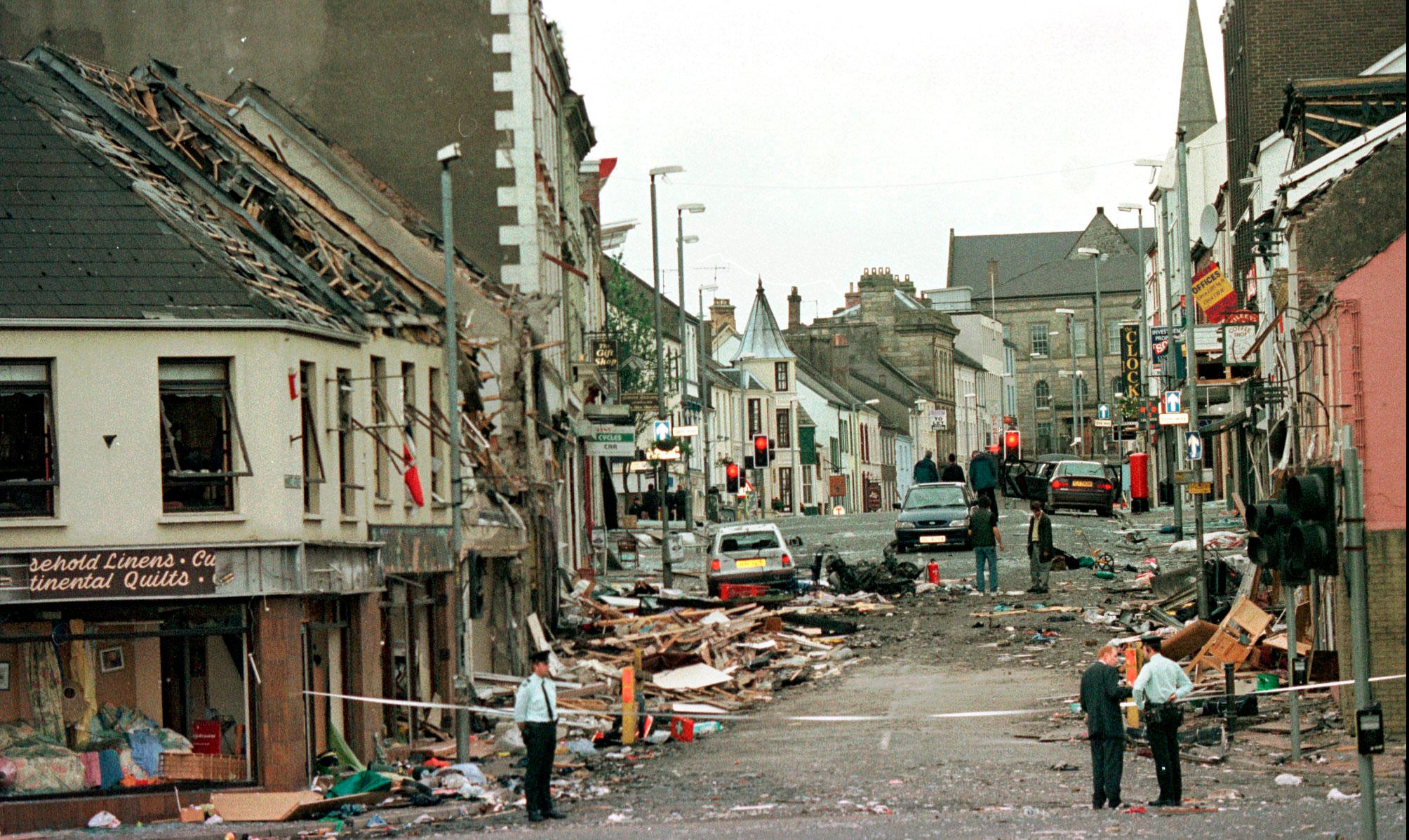Judge: 'Plausible' N Ireland bombing could have been stopped
A judge in Northern Ireland says there is plausible evidence that authorities could have prevented the worst single atrocity of the Troubles

Your support helps us to tell the story
From reproductive rights to climate change to Big Tech, The Independent is on the ground when the story is developing. Whether it's investigating the financials of Elon Musk's pro-Trump PAC or producing our latest documentary, 'The A Word', which shines a light on the American women fighting for reproductive rights, we know how important it is to parse out the facts from the messaging.
At such a critical moment in US history, we need reporters on the ground. Your donation allows us to keep sending journalists to speak to both sides of the story.
The Independent is trusted by Americans across the entire political spectrum. And unlike many other quality news outlets, we choose not to lock Americans out of our reporting and analysis with paywalls. We believe quality journalism should be available to everyone, paid for by those who can afford it.
Your support makes all the difference.A Northern Ireland judge ruled Friday that there was plausible evidence that authorities could have prevented the worst single atrocity of the Troubles.
High Court Justice Mark Horner recommended that authorities in the U.K. and the Republic of Ireland open an investigation into the Omagh bombing that killed 29 people.
Horner said that an investigation was necessary to determine whether a more “proactive” security approach might have thwarted the attack on Aug. 15, 1998.
“I am satisfied that certain grounds when considered separately or together give rise to plausible allegations that there was a real prospect of preventing the Omagh bombing,’’ Horner said at the court in Belfast
“These grounds involve … the consideration of terrorist activity on both sides of the border by prominent dissident terrorist republicans leading up to the Omagh bomb.”
The case was brought eight years ago by Michael Gallagher, whose son Aiden was killed in the blast, challenging the British government’s refusal to conduct a public inquiry into the bombing. Gallagher claimed that the bombing could have been prevented if British security agents and police officers from the Royal Ulster Constabulary had combined their intelligence on dissident republic groups.
U.K. law allows for wide-ranging public inquiries into issues of major public concern, but the government argued that a probe by the police ombudsman was the best way to address any outstanding issues in the Omagh attack.
Northern Ireland Secretary Brandon Lewis said that the government would wait to review the full decision before deciding how to proceed.
“We recognize that today the court has set out that there are ‘plausible allegations that there was a real prospect of preventing the Omagh bombing’ and that more should be done to investigate this,’’ Lewis said in a statement released after the ruling. “The U.K. government will take time to consider the judge’s statement and all its recommendations carefully as we wait for the full judgment to be published.”
Horner read only the conclusion to his judgment in court, explaining that he couldn’t release the full judgment setting out his reasoning because the person responsible for checking the document to ensure it didn’t contain sensitive material was self-isolating because of COVID-19. The complete judgment will be published after that review is complete, he said.
The justice also said that while he has no authority to compel officials in the Republic of Ireland to conduct their own inquiry, there would be a “real advantage” in conducting parallel investigations on both sides of the border.